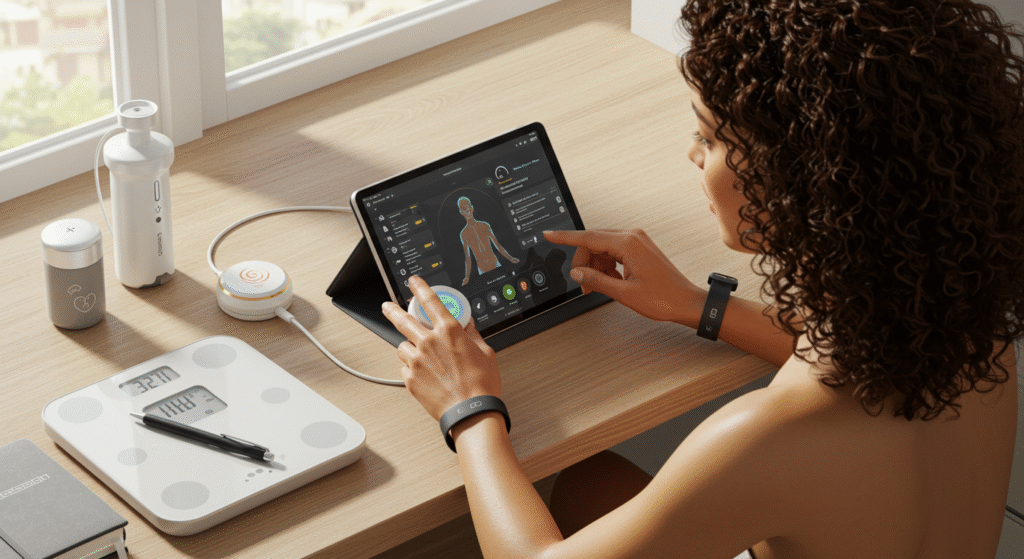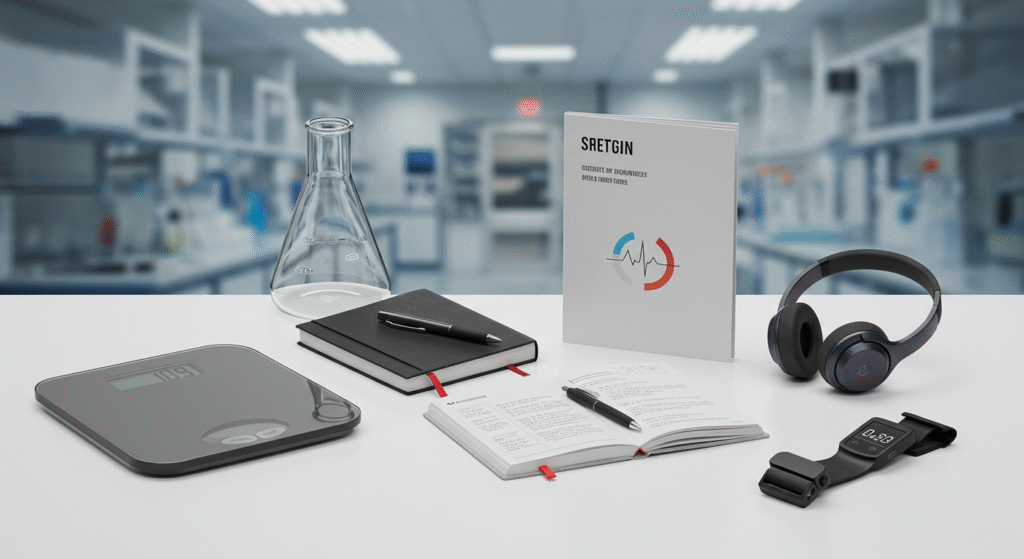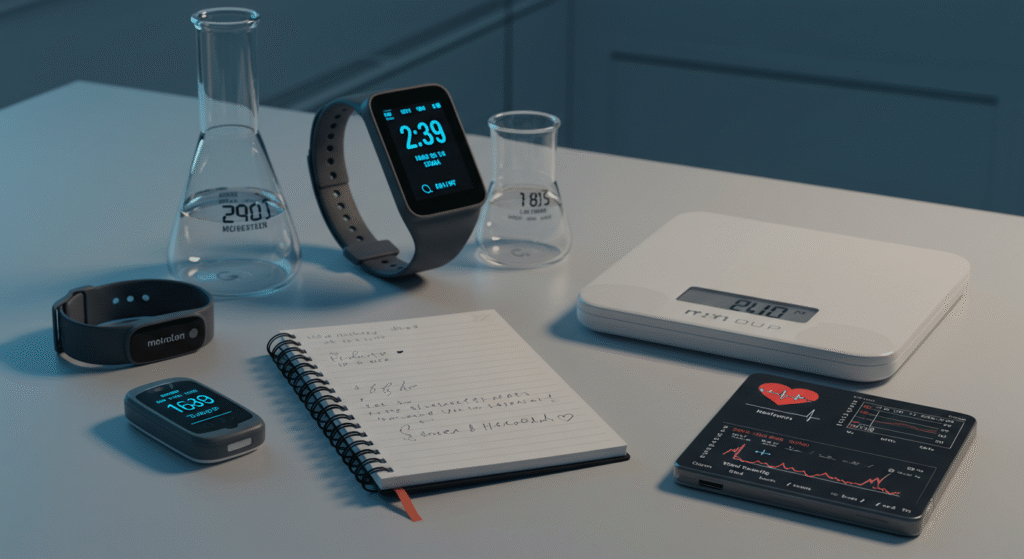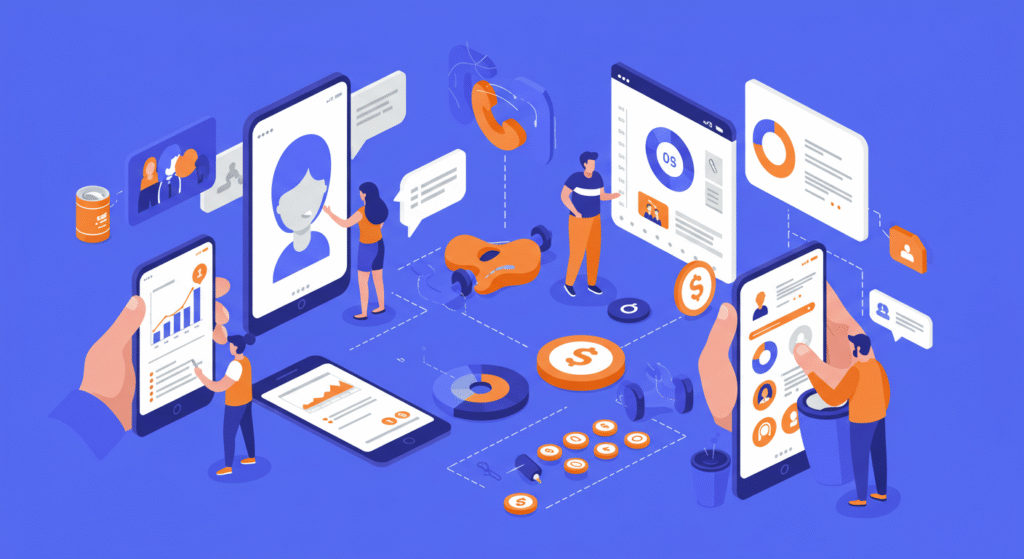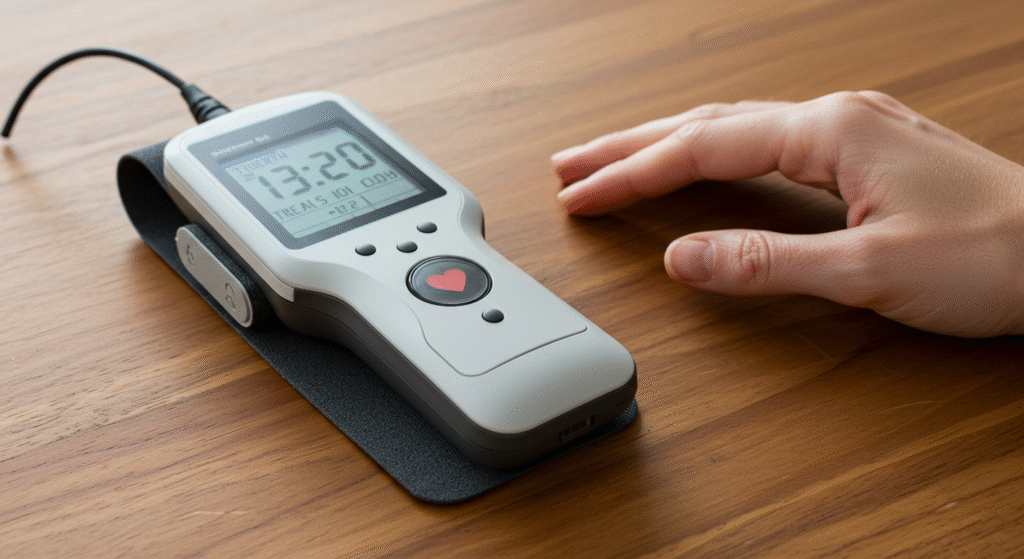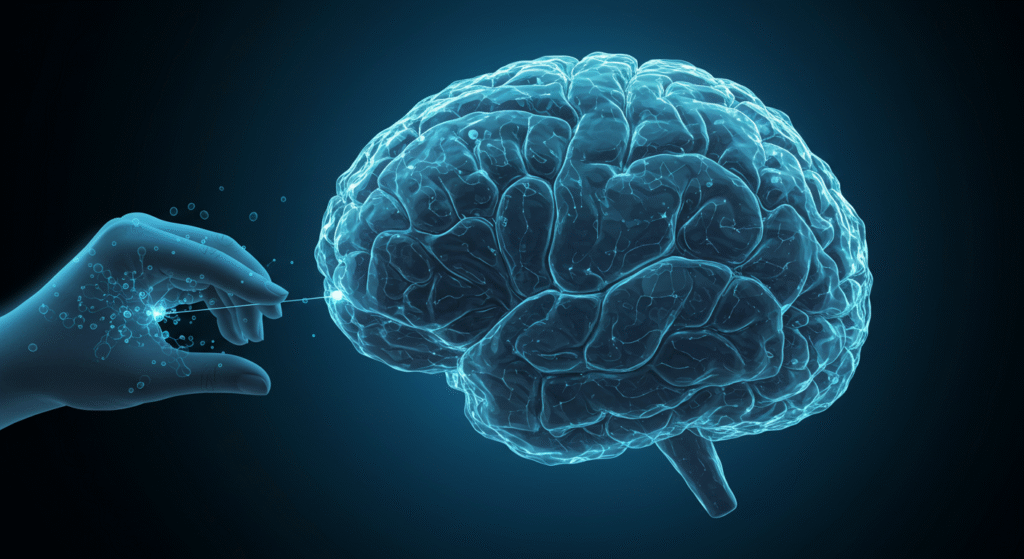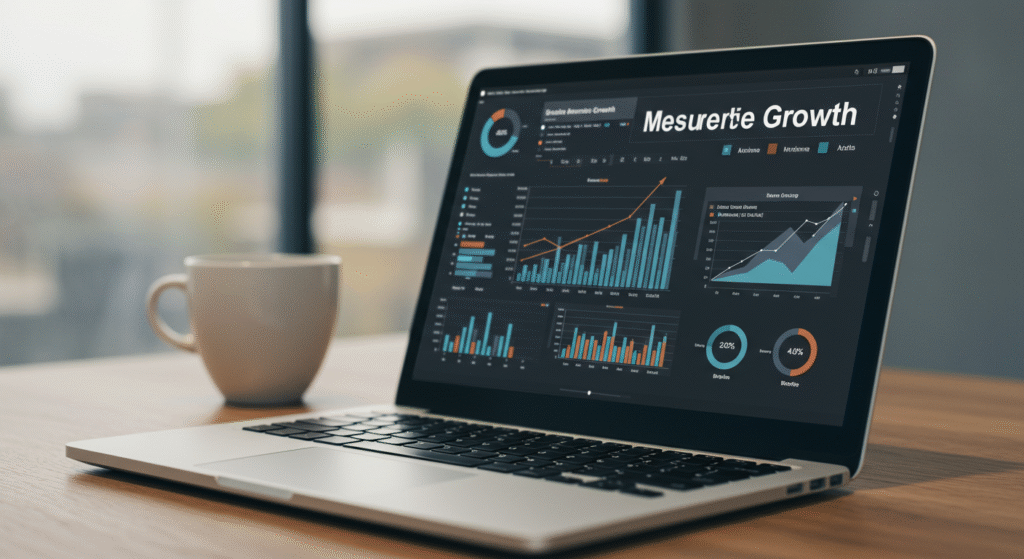Self-improvement isn’t just a passing trend—it’s a lifelong commitment to becoming the best version of yourself. By harnessing proven scientific tools, you can transform abstract goals into measurable, attainable progress. Gone are the days of guesswork; today, we have science-backed methods to enhance personal growth in all aspects of life. Whether you aim to master your emotions, enhance productivity, or improve physical health, the right tools can make your path smoother.
This guide unpacks the most effective scientific tools for self-improvement, offering practical advice you’ll want to implement immediately.
Table of Contents
- What Are Scientific Tools for Self-Improvement?
- Benefits of Using Scientific Tools for Personal Growth
- Cognitive Behavioral Therapy Techniques
- Habit-Tracking Apps and Their Importance
- Using Journaling as a Transformative Tool
- Biofeedback for Stress Management
- Sleep Science Tools for Restful Nights
- Productivity Hacks from Neuroscience
- Mindfulness and Meditation Tools Backed by Research
- Measuring Growth Through Data-Driven Insights
1. What Are Scientific Tools for Self-Improvement?
Scientific tools for self-improvement leverage research, technology, and methodologies to foster personal growth. Unlike vague self-help advice, these tools operate on proven principles from disciplines like psychology, neuroscience, and behavioral science.
- Example: Habit trackers use reinforcement principles to build long-lasting routines.
- These tools increase self-awareness by helping you understand behavior patterns and triggers.
- They often rely on quantifiable data, making progress measurable instead of subjective.
For instance, mindfulness apps such as Calm or Headspace weren’t created on a whim—they are based on studies showing how mindfulness reduces stress and enhances focus. Incorporating these tools helps align your efforts with evidence-based approaches for maximum impact.
Quick Tip: Choose tools that address specific goals, whether it’s emotional intelligence, physical health, or mental resilience.
2. Benefits of Using Scientific Tools for Personal Growth
Using scientific tools for personal growth allows you to leverage proven methods to achieve your objectives more effectively. These tools provide structure, measurable progress, and data-driven insights to guide your development. Additionally, they help reduce trial-and-error by focusing on strategies that are backed by research. This ensures that your time and effort are invested in practices that yield tangible results.
Why should you invest time in science-based strategies? Here’s what sets these tools apart:
- Personalization: Many test your individual needs and adjust recommendations accordingly.
- Accountability: Tools like habit apps keep you on track with reminders and progress updates.
- Efficiency: Evidence-based practices eliminate guesswork, saving time.
- Measurability: Metrics-driven tools allow you to track tangible improvements.
- Flexibility: These tools adapt to various aspects of self-improvement—from mental clarity to physical strength.
For example, cognitive-behavioral therapy (CBT) apps like Woebot offer immediate psychological insights based on real-time inputs, demonstrating the tangible benefits of using science-based techniques.
When you combine measurable metrics with actionable feedback, reaching personal goals becomes less daunting and more achievable.
3. Cognitive Behavioral Therapy Techniques
Cognitive Behavioral Therapy (CBT) techniques focus on identifying and challenging negative thought patterns to improve overall mental well-being.
Practices such as journaling, thought reframing, and mindfulness exercises are commonly employed to foster healthier perspectives.
These techniques, when practiced consistently, can lead to significant improvements in managing stress, anxiety, and even depression.
Cognitive-behavioral therapy (CBT) isn’t limited to clinicians. Today, apps like MindDoc bring these methods to your fingertips.
Key Techniques Include:
- Reframing Thoughts: Identify negative thought loops and replace them with constructive ideas.
- Behavioral Activation: Set small, positive activities to combat stagnation or anxiety.
- Journaling Emotional Triggers: Log daily stressors to uncover recurring patterns.
Scientific discoveries show CBT enhances emotional resilience by teaching users to assess thoughts logically. Whether you struggle with anxiety, procrastination, or stress, these techniques provide highly-controlled exercises to help align thoughts with desired actions.
Tool Spotlight: Try “Moodpath” to track negative beliefs over time and receive actionable recommendations rooted in CBT.
4. Habit-Tracking Apps and Their Importance
Habit-tracking apps empower users to build consistency by visualizing progress.
With features like reminders, streak tracking, and data-driven insights, they help reinforce positive behaviors.
Over time, this reinforcement creates sustainable habits that lead to long-term personal growth.
Building habits is critical for achieving long-term change, and apps like Habitica or Streaks make the process rewarding.
Benefits of Habit Trackers:
- Visual Progress: Seeing tasks completed boosts dopamine release.
- Reinforcement Patterns: Positive affirmations encourage consistency.
- Routine Customization: Tailor habits based on lifestyle or professional demands.
Research reveals that tracking habits increases adherence rates by up to 80%. Gamification in apps, like unlocking rewards, effectively turns self-improvement into a daily ritual.
Notable habit apps also sync with wearable devices, offering real-time reminders and analytics for an integrated experience.
5. Using Journaling as a Transformative Tool
Journaling promotes self-reflection and helps individuals process emotions effectively.
It serves as a tool to set goals, track progress, and cultivate gratitude.
Regular journaling fosters clarity, mindfulness, and personal growth over time.
Journaling isn’t just a creative outlet—it’s grounded in studies showing stress reduction and mental clarity. Practical formats include reflective writing, bullet journaling, and gratitude logs.
How Journaling Helps:
- Organize thoughts during high-pressure decision-making.
- Decrease cortisol levels over time.
- Promote self-awareness by tracking behavioral patterns.
Apps tailored for journaling, such as Day One, offer digital convenience while retaining core principles of reflective practice.
Pro Tip: Incorporate prompts like “What went well today?” to build gratitude into your routine.
6. Biofeedback for Stress Management
Biofeedback techniques involve using technology to monitor physiological functions such as heart rate, muscle tension, and breathing patterns.
By becoming aware of these processes, individuals can learn to control their body’s responses to stress.
Biofeedback devices provide real-time feedback, enabling users to practice relaxation techniques effectively.
Common tools include wearable heart rate monitors and specialized apps that guide meditation or breathing exercises.
Regular biofeedback sessions have been shown to reduce stress-related symptoms and improve overall emotional well-being.
This method is especially beneficial for individuals experiencing chronic stress or anxiety, offering a science-backed approach to calming the mind and body.
Biofeedback uses monitoring devices to help users recognize physiological stress signals.
- How It Works: Sensors measure heart rate, muscle tension, or breathing, translating data into actionable dashboards.
- Examples include wearable trackers with guided breathing programs.
- Over time, users learn to modulate responses and reduce physical manifestations of stress.
Leading products like Muse combine wearable headbands with meditation apps, amplifying data-backed relaxation.
Biofeedback enhances mind-body connection, providing benefits like lowered blood pressure and improved mood control.
7. Sleep Science Tools for Restful Nights
Quality sleep drives emotional well-being and productivity.
Scientific tools like smart mattresses or sleep-tracking wearables analyze sleep cycles to deliver actionable improvements.
Smart sleep tools such as weighted blankets and white noise machines are helping individuals achieve deeper, more restorative sleep.
These tools use scientific principles to create optimal sleeping environments and improve sleep quality over time
Key features include:
- Real-Time Sleep Analysis: Apps monitor REM cycles via motion sensors.
- Guided Bedtime Rituals: Recommendations align with circadian rhythms.
By optimizing environment and behavior, these tools reprogram unhealthy sleep habits scientifically.
Notable Mention: WHOOP tracks recovery metrics directly influenced by overnight quality of rest.
8. Productivity Hacks from Neuroscience
Neuroscience offers insights into how the brain functions under different conditions, allowing individuals to optimize their focus and efficiency.
Techniques such as time-blocking align with the brain’s natural attention spans, while mindfulness practices enhance cognitive flexibility.
Leveraging these strategies can lead to sustained productivity and improved mental clarity
Leverage neuroscience-backed productivity hacks to maximize focus.
- Time Blocking: Use apps like Clockify to segment work into manageable intervals.
- Nootropic Supplements: Enhance mental clarity using research-based cognitive enhancers.
- Peak Hour Awareness: Track energy levels to identify prime periods for “deep work.”
These principles transform random efforts into mission-aligned strategies backed by data analysis.
Fact: Studies confirm you’re 50% more productive when tasks are timed with peak hours.
9. Mindfulness and Meditation Tools Backed by Research
Mindfulness isn’t just a buzzword; it’s a scientifically validated discipline.
Meditation apps reduce cortisol while boosting mindfulness-based emotional intelligence.
Case studies highlight measurable reductions in stress after consistent app use.
Platforms like Insight Timer provide diverse modules ranging from beginner programs to advanced mind-training courses.
Mindfulness can also enhance focus, creativity, and problem-solving abilities, making it a valuable tool in personal and professional growth.
Studies have shown that even a few minutes of daily meditation can significantly improve attention span and emotional resilience.
For those new to mindfulness, guided sessions can ease the process, while seasoned practitioners can explore advanced techniques like body scans or loving-kindness meditation.
By integrating these practices into daily routines, individuals can foster a more balanced and fulfilling lifestyle
Mindfulness doesn’t just help mental health—it improves focus, empathy, and resilience.
10. Measuring Growth Through Data-Driven Insights
Finally, measurement is key to enhancing personal growth. Tools such as Fitbit or Apple Health track progress over time, offering metrics-driven feedback on exercise, calorie intake, or heart rate.
Use these insights alongside journal entries or therapist feedback for holistic improvements.
Example Insight Flow:
Start small, measure outcomes monthly, iterate actions toward significant milestones.
| Metrics | Tool/Method | Purpose |
| Mental Wellness | Journaling, Therapy | Enhance emotional resilience and clarity |
| Steps Taken | Fitbit, Apple Health | Monitor daily activity levels |
| Calorie Intake | MyFitnessPal, Lose It | Manage diet and maintain energy balance |
| Heart Rate | Fitbit, Garmin | Track cardiovascular health and fitness |
| Sleep Duration/Quality | Sleep Cycle, Whoop | Improve rest and recovery patterns |
Frequently Asked Questions (FAQs)
- What is the best way to track daily activity levels?
Using fitness trackers like Fitbit or apps such as Apple Health can provide accurate and accessible ways to monitor your steps and overall activity.
- How can I accurately track my calorie intake?
Apps like MyFitnessPal or Lose It are excellent tools for logging food consumption and understanding your daily calorie intake.
- Why is heart rate monitoring important for fitness?
Tracking heart rate helps assess cardiovascular health, optimize workouts, and gauge overall fitness progress.
- Which tools are recommended for improving sleep quality?
Sleep tracking apps like Sleep Cycle and devices like Whoop can provide insights into your sleep patterns and suggest ways to enhance rest and recovery.
- How can journaling support mental wellness?
Journaling helps to manage stress, process emotions, and improve mindfulness, contributing to overall mental clarity and resilience.
- Can therapy significantly enhance emotional well-being?
Yes, therapy provides a safe space to address psychological challenges, develop coping strategies, and enhance emotional health.
- Are there any free apps for monitoring calorie intake?
Apps such as MyFitnessPal have free versions that allow basic food logging and nutritional tracking.
- How can I increase my daily step count effectively?
Simple changes like taking the stairs, walking during calls, or setting step challenges can make a big difference in daily activity levels.
- What’s the ideal amount of sleep for most adults?
The National Sleep Foundation recommends 7–9 hours of sleep per night for optimal health and functioning.
- Can wearable devices replace regular health check-ups?
While they provide valuable insights, wearable devices should complement, not replace, regular medical check-ups with qualified healthcare professionals.
Final Thought
Prioritizing small, consistent health habits can lead to significant long-term benefits. Whether it’s improving sleep quality, staying active, or leveraging technology for better insights, making mindful choices each day is key to maintaining overall well-being.

